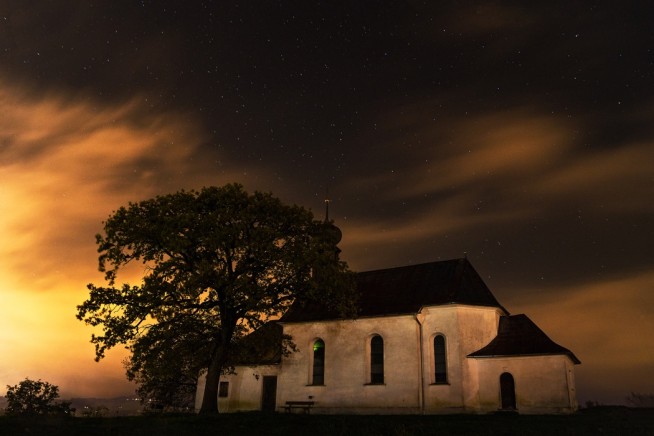Pain, medicine, and depression were overwhelming me. The doctors told me I was winning my battle with leukemia, but I felt I was losing emotionally. The depression that had overtaken me seemed worse than physical disease.
As a rabbi I thought I had been trained to deal with depression. I was used to members of my congregation coming to me in times of suffering. People counted on me for comfort and understanding. Yet, here I was, unable to deal with my own depression.
Gradually, I was able to summon the strength within me. “God,” I prayed, “I’m trying to get up this mountain, but every time I get near the top, I get knocked down again. And, I’m not asking you to get me all the way to the summit, but could you hold my hand, and, please, don’t let me fall any further into the abyss?”
As I prayed, I searched for the divine spark within my spirit, for the power that I possessed, and which I believe all of us have. And within myself I found the courage and strength to keep fighting and not give up.
In the Jewish tradition, prayer doesn’t mean somehow finding God’s unlisted phone number or rubbing a magic lamp to bring forth a genie. It means looking into yourself, determining the meaning of your life, finding out what really is of value, and discovering what you believe. Prayer is the “self-judgment” that empowers us to reach higher, search deeper, and be true to ourselves.
Here are my suggestions for lifting yourself up in times of adversity:
LET YOUR SPIRIT SING. You don’t need a designated place or specific words. Sometimes the song we sing is joyous; sometimes it is a lament. Sometimes the song is loud and strong; sometimes it is weak and weary. Be in touch with your feelings and help yourself by opening your heart.
BE YOUR SPECIAL SELF. The story of the creation of the first human being, Adam, reminds us that each of us is unique.
Every human being represents the potential of the whole world. @TheRunningRabbi
(Click to Tweet!)
I vividly recall the time when a young woman came to me talking about taking her life. She was very depressed and felt worthless. I told her that no matter how low a person sinks there is always something special and worthwhile in everyone. I took note of her smile, commented on her touching way of revealing her feelings, and told her that she was special. When she left my study I prayed I had said the right thing. Years later there was a knock on my study door. She had returned to thank me for helping her get through a very difficult time in her life..
REMIND YOURSELF WHAT REALLY MATTERS. When I was depressed in the hospital, I called to mind the good things in my life, what I had to live for. I pushed myself to remember Thanksgivings with my family, vacations in Colorado, running up the ski lift in Aspen, my daughter whirling around the ice skating rink. I thought of my wife and friends who were praying for me. I thought of the nurses who comforted me, and the doctors who struggled to keep me alive.
CONFRONT YOUR FEARS. When one of my congregants asked me, “What do I do in the middle of the night when no one is with me and I’m scared?” I told him, don’t try to run away and hide under the blanket. Sit up in bed and let all the nightmarish things play out before your eyes. Visualize everything that terrifies you. Then, when you have all this in front of you, acknowledge your fears. You have a right to feel frightened and depressed about awful things that have happened. But then realize that despite all that you are still very much alive!
GIVE OF YOURSELF. After my illness, I rededicated my life to helping others, especially those with cancer. Someone is always in need, someone whose plight is worse than our own. By helping others we give meaning to our lives.
LEARN SOMETHING NEW. A young woman, the mother of four children, came to see me. She had recently been diagnosed with breast cancer. Along with her chemotherapy treatments, she treated herself to ski lessons. She wanted to experience something new to take her mind off her illness, to reaffirm her life. “There I was,” she told me, “hanging onto the tow rope, climbing that hill, exhilarated by being outside on a crisp winter day – thankful for the day, thankful for my life.”
Through my illness and depression, I learned to see the true worth within myself, to reflect on the meaning of my life, even to find meaning in my illness.
In a sense, my weakness made me a stronger person. I have learned that what “doesn’t destroy me, strengthens me.” Now, I empathize with other people in a way I was never able to before. I look for the goodness in people and in life. I look for the oneness of all humanity, and I find it.
When you are down, may you find strength in all you do and say and feel and think – and then the miracle will happen; the sun will shine for you; the world will once again be beautiful. Look for it. It will happen. I know.










